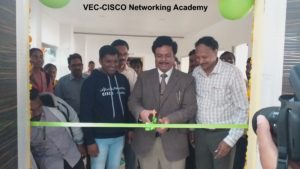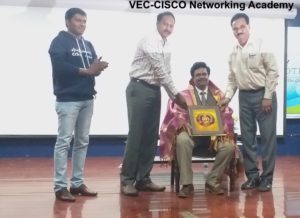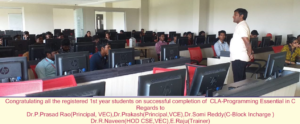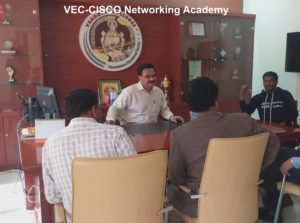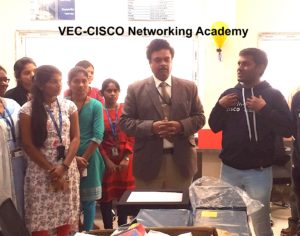Objectives and OutcomeWelcome to the VEC-Cisco Networking Academy program!This is the first of four courses at our best B.Tech college in Telangana designed to provide classroom and laboratory experience in current and emerging networking technology and to help prepare for certification as a Cisco Certified Network Associate (CCNA). This curriculum presents a comprehensive overview of networking; from fundamentals to advanced applications and services to students of our best Engg college. It is based on the top-down approach to networking that is popular in many top engineering colleges in Telangana & universities. The course emphasizes the concepts and skills required to design networks while providing opportunities for practical application and hands-on experience by teaching students how to install, operate, and maintain networks. The curriculum prepares students for the demands of the workplace and motivates them to continue their education and learning. The program recognizes multiple learning styles of students with Web-based, multimedia content; online assessment and evaluation throughout the course; hands-on labs; and instructor training and support. Upon completion, students of our best engineering college in Warangal will have the opportunity to take a certification exam. COURSE GOALS AND OBJECTIVES This course introduces the architecture, structure, functions, components, and models of the Internet and other computer networks. It uses the OSI and TCP layered models to examine the nature and roles of protocols and services at the application, network, data link, and physical layers. The principles and structure of IP addressing and fundamentals of Ethernet concepts, media, and operations are introduced to provide a foundation for the curriculum. Labs use a “model Internet” to allow students to analyze real data without affecting production networks. Packet Tracer (PT) activities help
VEC-CISCO Networking Academy Objectives and Outcome students analyze protocol and network operation and build small networks in a simulated environment. At the end of the course, students build simple LAN topologies by applying basic principles of cabling; performing basic configurations of network devices, including routers and switches; and implementing IP addressing schemes.
By the end of the course, students will achieve the following objectives: Given a LAN/WAN configuration scenario, students will be able to:
CCNA Objectives & Outcomes |
|


